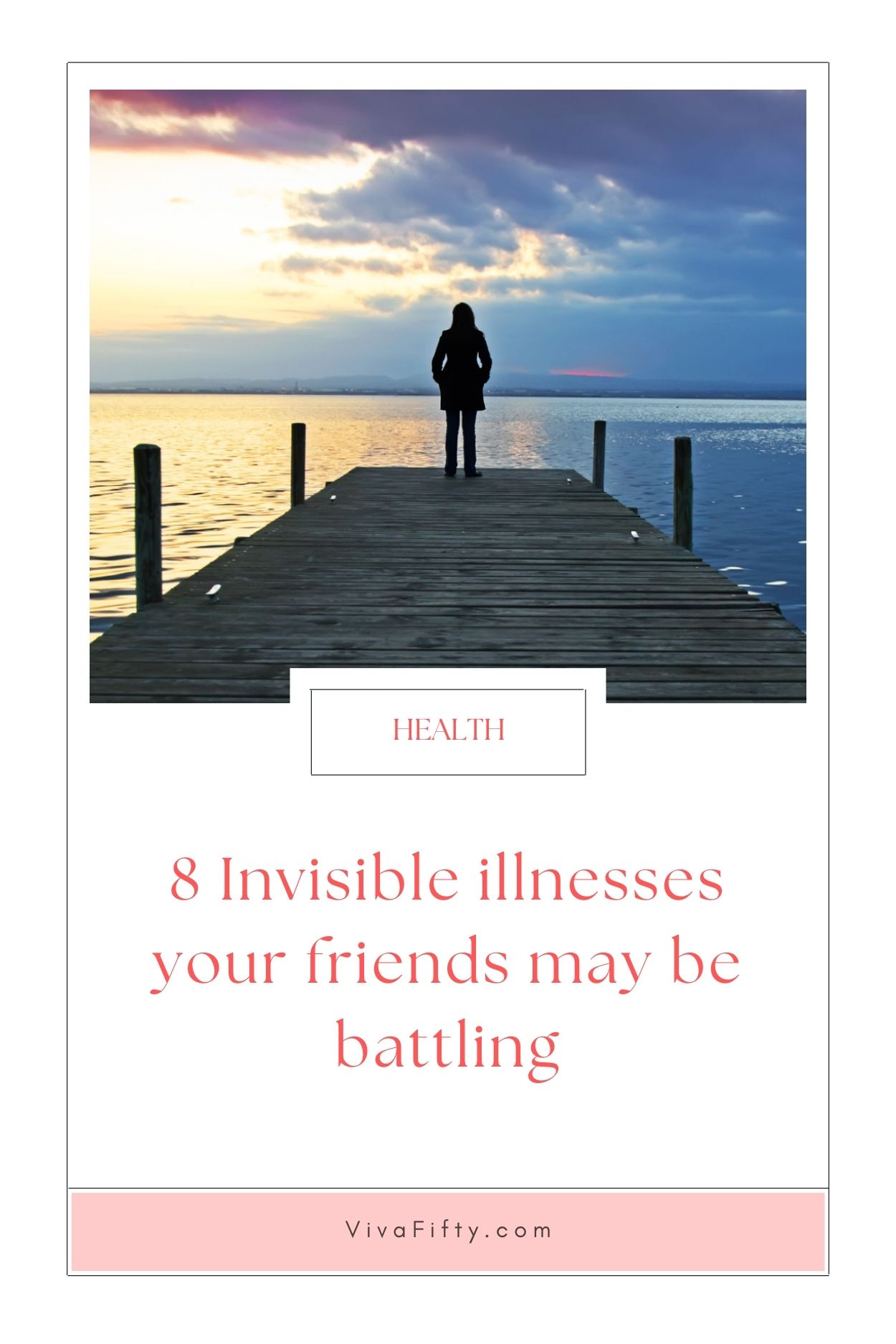If you look around your group of friends, it’s incredibly likely that at least one of them is suffering in silence.
Invisible illnesses—those that cannot be detected by the naked eye—are widespread and very typically chronic and often incurable, which means that people live with them on a constant basis.

Many people who suffer from invisible illnesses do their best to go about regular lives without drawing much attention to themselves—they have no choice but to live with their illness, so you may not even be aware that they have one.
If a friend starts behaving differently, is lethargic or uninterested in things they previously enjoyed, not attending social events as often as usual, etc. they may actually be sick.
There are many, many possible invisible illnesses, but here are several that seem to be becoming incredibly common:
Fibromyalgia
Fibromyalgia just may be becoming the poster child for invisible illnesses, mainly because doctors don’t even know much about it.
It’s simply defined as widespread muscle pain and tenderness—it’s a general diagnosis for chronic pain.
Many people try to manage the pain with lifestyle changes or prescription painkillers, but struggle to do so, which can affect their moods, energy levels and even cognitive awareness.

Crohn’s Disease
Crohn’s Disease is one of the truly legitimate reasons for people to stop eating gluten.
Crohn’s is a type of chronic inflammatory bowel disease that is exacerbated by gluten.
Symptoms include diarrhea, abdominal cramps, rectal bleeding, weight loss, fatigue, night sweats and more, but because these are all very private situations an onlooker may have no clue that someone is affected by Crohn’s.
It can also be quite difficult to diagnose since these symptoms are associated with so many other illnesses.
Hashimoto’s Disease
Hashimoto’s Disease is an autoimmune disorder that affects the function of the thyroid gland, with the potential to cause both hyper- and hypothyroidism.
The disease attacks the thyroid making it incapable of producing the hormones your body needs to function.
Hashimoto’s affects as many as five in every 100 people.
Symptoms include weight gain, joint pain, loss of memory, slow heart rate and more.
Also read: 4 Reasons you should have a colonoscopy

Lyme Disease
Ticks and the diseases they carry have been a big topic of conversation over the past few years as tick populations seem to be increasing throughout the United States.
Though Lyme Disease is treatable when caught early on, many people don’t realize they are sick until antibiotic-treatment is no longer effective.
Once that point has been reached, Lyme Disease can be a chronic, lifelong illness with symptoms including arthritis, severe fatigue, vertigo and confusion among others.

Sjogren’s Syndrome
As many as four million Americans have the autoimmune disease, Sjogren’s Syndrome, which affects the entire body with symptoms including dry eyes and mouth, fatigue and joint pain.
More seriously, Sjogren’s can cause organ dysfunction including issues with the central nervous system.
Because the symptoms are very common to those of other diseases, autoimmune and otherwise, Sjogren’s is often overlooked.
Atrial Fibrillation
Many heart conditions aren’t necessarily visible to the naked eye, which is why heart attacks often seem sudden, but atrial fibrillation—particularly paroxysmal a-fib—is even more hidden because it comes and goes.
People with atrial fibrillation suffer from intermittent bouts of extremely rapid heart rate that can last anywhere from minutes to days and then completely go back to normal as if nothing ever happened.
It’s a terrifying disease that somewhat mimics the symptoms of a severe panic attack, but only during an episode.
The rest of the time, you would not know anything was wrong.
These episodes can occur every day or can stop completely for months or even years and then come on suddenly again.
Multiple Sclerosis
Living with multiple sclerosis (MS) is a unique journey filled with ups and downs that can have a significant impact on various aspects of a person’s life.
MS is an autoimmune disease that affects the central nervous system, leading to a wide range of symptoms such as fatigue, muscle weakness, balance issues, cognitive difficulties, and sensory changes.
These symptoms can vary from person to person and may fluctuate over time, making it challenging to predict how the disease will progress. Everyday tasks that were once simple may become more difficult, and individuals with MS often face physical and emotional hurdles.
However, with the support of a healthcare team, appropriate medications, therapeutic interventions, and a strong support system, individuals with MS can effectively manage their symptoms and strive for a fulfilling life.
Mental Illness
Many of the most common types of mental illness like depression and anxiety can go completely unnoticed indefinitely.
Sufferers of mental illness often find ways to hide what they are experiencing from the outside world and will put on a so-called “happy face” when they are around other people, which can make them feel even more isolated further exacerbating the illness.
This sort of mental illness is extremely dangerous, but sufferers can benefit greatly from regular treatment and the attention and understanding of family and friends.






Leave a Reply